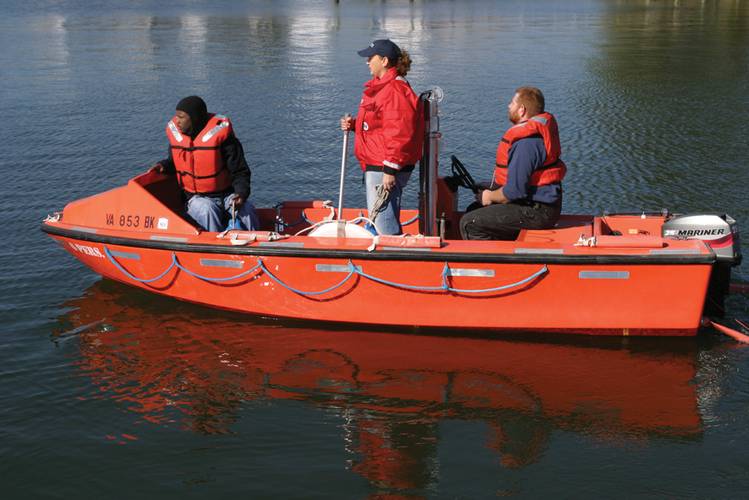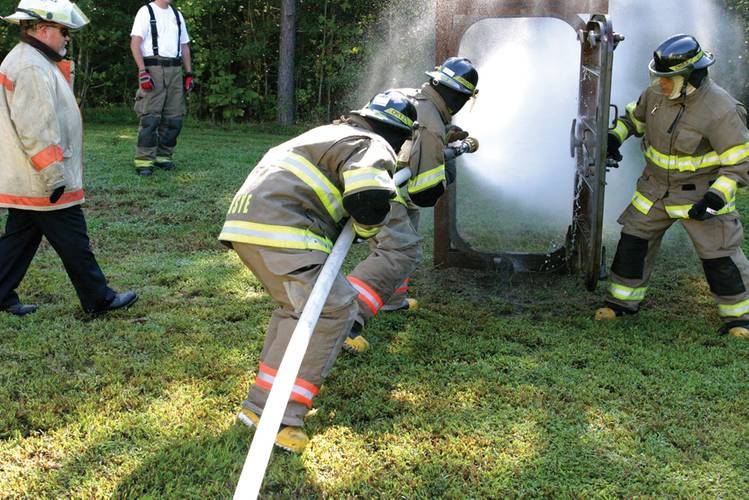Staying Informed of Mariner Licensing Changes
Quick Tips to save time, money, and cut through the red tape.
Whether it’s ensuring you’re in compliance with the International Maritime Organization’s major revisions to the International Convention on Standards of Training, Certification and Watchkeeping for Seafarers, or keeping up with updates to U.S. Coast Guard policy letters, navigating changes in professional mariner training requirements can be daunting.
“But it doesn’t have to be,” said Capt. Guy Sorensen, president of the Virginia-based Chesapeake Marine Training Institute (CMTI). Established in 1992 by Sorensen, CMTI provides education and training to professional and recreational mariners. He adds, “From professional marine publications to training centers and up-to-date web sites, there are a few key ways mariners can stay up to date without feeling like they have to do a research project after being at sea for weeks or months.”
Mainly, Sorensen advises his students, save a few key web sites to your browser (listed below), subscribe to newsletter updates that come straight to your inbox and program your local maritime training center’s phone number as a quick dial.
National Maritime Center – and you …
The U.S. Coast Guard’s National Maritime Center (www.uscg.mil/nmc) issues more than 240,000 credentials to U.S. Merchant Mariners operating throughout American waters. With a goal to “ensure a safe and secure transportation system throughout the United States by implementing and enforcing all government mandates and U.S. Coast Guard policies,” it’s imperative they keep their web site up to date with any licensing requirement changes.
Head to the National Maritime Center’s home page and look under “announcements.” Frequent updates are posted there. While on the site, check out the other items to make your licensing process smooth. You’ll find everything from checklists, policy letters, forms, applications and more. Sign up for the center’s email distribution under the “helpful links” tab.
And the IMO, too …
Sail outside the U.S. waters? Add the International Maritime Organization (IMO) homepage to your favorites (www.imo.org). The IMO is the “United Nations specialized agency with responsibility for the safety and security of shopping and the prevention of marine pollution by ships.” Mainly, the IMO keeps international marine legislation up to date and accepted by as many countries around the world as possible. That U.S. Coast Guard web site mentioned above is the American arm that helps implement the international legislation the IMO adopts.
“Shipping is perhaps the most international of the world’s industries, serving more than 90 percent of global trade,” according to the IMO. “IMO plays a key role in ensuring that lives at sea are not put at risk and that the marine environment is not polluted by shipping as summed up in IMO’s mission statement – safe, secure and efficient shipping on clean oceans.” The IMO not only keeps the homepage populated with the latest news, but the media center link in the main menu is a valuable resource for everything from latest news, to IMO meeting summaries, multimedia and links to the United Nations.
Stay Connected
“Students may not often think about it while they are in class, but the training you receive at Chesapeake Marine Training Institute is meant to keep the mariner, the ship and our environment safe,” Sorensen said. “It’s not lost on us that the training our students receive here may be needed to save lives and property at sea.”
Where did you receive your maritime training? That’s the third, and likely, most important web source and phone number to save to your browser. Why? “It’s our job,” said Sorensen of his Chesapeake Marine Training Institute, and his fellow maritime training centers. “We have a curriculum development department just for that reason. Between myself and the seasoned mariners who teach our classes, we keep up on the latest changes to ensure we are keeping our students up on the latest changes.”
CMTI, like other training centers, encourages current and former students to call anytime with questions. “If there’s anything we understand, it’s that the life of a mariner is busy,” Sorensen said. “You often have a limited time to get things done while you are in port, so we do all we can to streamline the steps mariners have to take to get what they need to be safe at sea.”

















